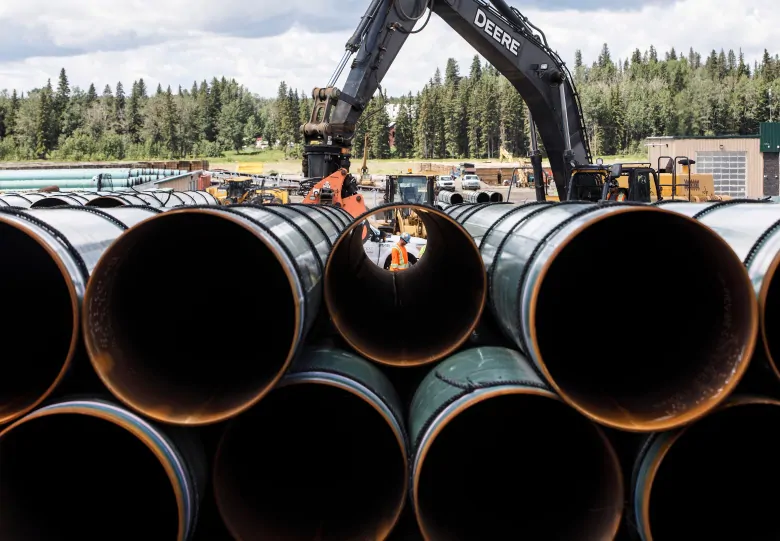First Nations in court this week arguing Trans Mountain pipeline expansion should be quashed — again

Several B.C. First Nations will be squaring off against the federal government in the Federal Court of Appeal in Vancouver this week, arguing that it failed to conduct meaningful consultations with them about the Trans Mountain pipeline expansion and that the project should be cancelled.
The case is similar to the previous Federal Court of Appeal case that quashed the approval of the pipeline expansion in August 2018 except it is focused on the specific window of time when the federal government revisited its duty to consult with First Nations before approving the project once again in June of this year.
The Squamish Nation, the Tsleil-Waututh Nation, Coldwater Indian Band and a collective of Stó:lō bands will be making arguments about why they believe the renewed consultation efforts fell short in each of their specific communities.
The Crown-corporation-owned expansion project would twin an existing 1,150-kilometre pipeline that extends from Edmonton to Burnaby, B.C., nearly tripling its capacity to move oil from Alberta to coastal B.C., and then to markets in Asia. The cost has been estimated to be between $7.4 billion and $9.3 billion.
Prior consultation fell short, 2018 court ruling found
The federal government’s duty to consult stems from Section 35 of the Constitution, which recognizes Aboriginal and treaty rights. Over decades, court rulings have been defining what Indigenous rights look like and under what circumstances the government can make a decision that infringes on those rights.
The degree of consultation required and the accommodations that may need to be considered depend on the project under consideration and the level of potential impacts on a specific community.
The initial Federal Court of Appeal ruling in August 2018 stated that some of the federal government consultation work was adequate but found “at the last stage of the consultation process prior to the decision of the Governor in Council … Canada’s efforts fell well short of the mark set by the Supreme Court of Canada.”
As a result of this ruling, the federal government was forced to revisit that last stage of consultation and tasked retired Supreme Court justice Frank Iacobucci with overseeing that work.
Over the next three days, several parties will be making arguments to the court: four First Nations groups, the federal government, Trans Mountain and several interveners. Proceedings will be livestreamed via the court website.
The case will focus on the work that happened under Iacobucci between Aug. 30, 2018, and June 18, 2019.
Upper Nicola and Stk’emlupsemc te Secwepemc, two of the six nations initially approved to proceed with arguments before the court, have since dropped out after signing agreements with Trans Mountain.






